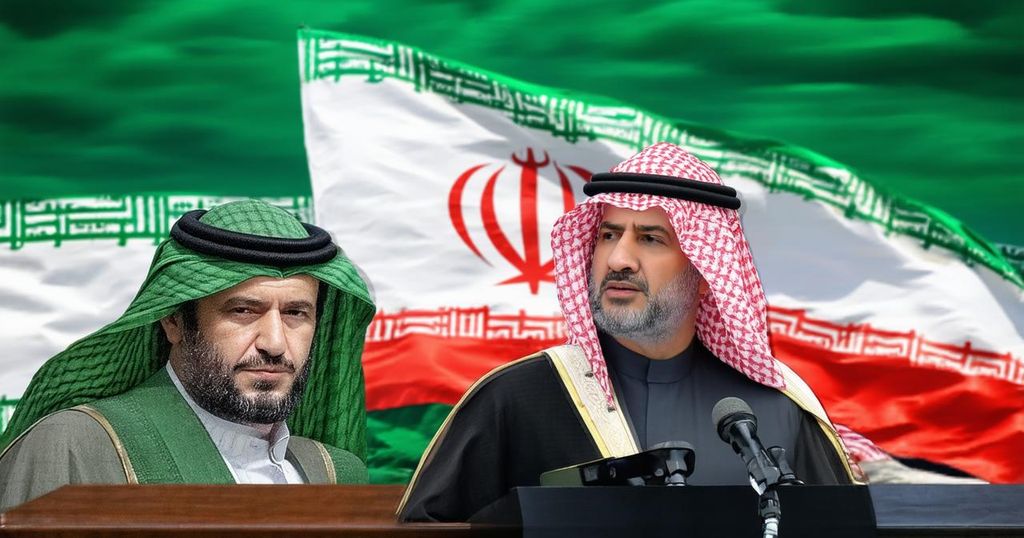Arab Allies Increase Engagement with Iran Amidst U.S. Struggles to Contain Violence in the Middle East
Growing unease regarding U.S. capacity to de-escalate Middle East tensions has driven key Arab allies to strengthen ties with Iran. Washington’s appeals for calm have been largely disregarded as regional nations reassess their diplomatic strategies. High-profile diplomatic meetings among Gulf leaders and Iranian officials underline a deliberate shift towards neutrality as these nations seek to avert a broader regional conflict amid increasing skepticism of U.S. security commitments.
Increasing concerns regarding the United States’ inability to de-escalate tensions in the Middle East have led several of Washington’s key Arab allies to enhance their engagement with Iran, the primary regional adversary. In recent months, these Arab nations have sought to leverage their renewed relations with the Islamic Republic to prevent a broader regional conflict as US efforts to manage the situation have proven ineffective. US Secretary of State Antony Blinken recently arrived in Israel for his eleventh visit to the region this year, aiming to capitalize on the recent death of Hamas leader Yahya Sinwar to broker a ceasefire in Gaza. However, expectations have been moderated as US appeals for calm have largely gone unheeded, and Israel has declared its intention to continue its military campaigns in both Gaza and Lebanon. Blinken’s visit occurs alongside Israel’s preparations to respond to Tehran’s firing of hundreds of missiles on October 1, which marked one of the largest attacks on Israel to date. This missile strike was a reaction to Israel’s prior assassination of Hezbollah leader Hassan Nasrallah and its suspected targeting of Hamas chief Ismail Haniyeh in Tehran. Arab nations, already apprehensive about Shiite Iran’s influence in a region dominated by Sunni US allies, have begun to reassess their relationship with Tehran, particularly given their shared concerns with Israel regarding Iran’s support for various non-state Islamist groups. In a notable shift, Saudi Crown Prince Mohamed bin Salman, who previously lambasted Iran’s Supreme Leader Ali Khamenei as the region’s “new Hitler,” recently met with Iranian Foreign Minister Abbas Araghchi in Riyadh. This meeting was part of a series of diplomatic engagements between Iranian officials and Middle Eastern leaders, including visits to Jordan, Egypt, Qatar, Oman, and Bahrain. These diplomatic overtures seemed to yield positive assurances from regional allies, suggesting that their territories would remain uninvolved in hostilities against Iran. This newfound diplomacy highlights a broader trend in which Gulf Arab monarchies strive to maintain neutrality and avoid direct participation in escalating conflicts. A senior analyst noted, “The Gulf (Arab) monarchies’ priority is not to be directly involved in a proper regional conflagration. They fear they would be targeted.” While some Gulf Arab states may be privately relieved to see the weakening of organizations like Hezbollah and Hamas, they remain cautious due to the unpredictability of Israel’s military objectives. Despite the Biden administration’s efforts to mediate a ceasefire in Gaza and curb violence in Lebanon, it has encountered significant challenges. The Gulf states are increasingly wary of US protection as they have faced aggression from Iran-affiliated groups, leading them to doubt Washington’s commitment to their security. Such skepticism was intensified by past attacks on Saudi and UAE facilities attributed to Iran, which the US failed to address substantively. As the Gulf states navigate these complexities, their leaders are urging a stronger American role in stabilizing the region. UAE diplomatic adviser Anwar Gargash stated, “At this critical juncture, the UAE believes a robust and effective American role is extremely necessary.” While regional nations still rely heavily on their military alignment with the US, trust has eroded, prompting a recalibration of their foreign policies towards Iran. In conclusion, regional dynamics in the Middle East are shifting as Washington’s current strategy appears insufficient to address rising tensions. Arab nations are increasingly engaging with Iran to secure their interests and mitigate the risks of a broader conflict as US influence wanes amid growing skepticism of its commitment to regional stability.
This article discusses the shifting dynamics in the Middle East as Arab allies of the United States face growing concerns over escalating tensions, particularly involving Iran. The text outlines the response of these nations to perceived failures by the US to manage conflicts, revealing their move towards engagement with Iran in an attempt to prevent wider regional hostilities. Key geopolitical developments, including diplomatic meetings between Arab leaders and Iranian officials, are highlighted to illustrate the changing landscape of Middle Eastern politics and security.
The current situation in the Middle East reflects a critical juncture where Gulf Arab nations are reevaluating their alliances and engagement strategies, particularly with Iran. As US efforts to mediate regional conflicts falter, these nations are prioritizing diplomacy with Iran to sidestep direct involvement in escalating tensions, indicative of a deeper skepticism towards the US’s role as a security guarantor in the region. Their actions signal a notable reshaping of alliances and priorities as they navigate a complex and unstable geopolitical landscape.
Original Source: www.cnn.com




Post Comment